| Music Box |
Leontief Lover's Song of the Week:
ARTIST:Ryan and Chad ft. MLB PLAYERS
SONG: I Don't Dance (MLB PLAYERS REMIX)
ALBUM: High School Musical 2

|
| Comment Box |
|
|
| Please leave your comments about our blog and the articles you have read here, if you are not a blogger. Thank you very much! :) |
| Members |
| Zerge Zandueta
20 years old and counting, this dude loves sports and videogames. he hopes to contribute something good to society one day and make other people happy
"Humanity is the virtue of a woman, generosity that of a man." - Adam Smith
Kathryn Pua
this perky girl never fails to brighten up anyone's day. very friendly, approachable and outgoing, this person enjoys going out with her barkada, though an 'introvert' at heart
"And very often the influence exerted on a person's character by the amount of his income is hardly less, if it is less, than that exerted by the way in which it is earned." - Alfred Marshall
Bea Lim
they say silent water runs deep. this girl may seem quiet at first, but once you get to know her, you're in for loads of fun
"The friend of the present order of things condemns all political speculations in the gross." - Thomas Malthus
Raymond Lee
a 23 year old korean who makes all the girls go "ga-ga." 'nuff said. ;)
"Entrepreneurial profit is the expression of the value of what the entrepreneur contributes to production." - Joseph A. Schumpeter
Carlo Medina
hypnotic on the hardcourt, this basketball icon is not only good at putting 2 on the board but 3 on the report card
"In the long run we are all dead." - John Maynard Keynes
|
| Learning Corner |
Eco Lesson of The Week : Determinants of Supply and Demand
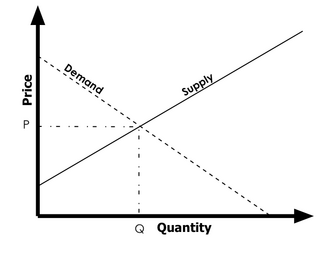
The intersection of the supply (upward sloping) and demand (downward sloping) curves is called the equilibrium pt. This point represents the price at which goods are sold and purchased at the market. However,
this equilibrium point may change depending on a shift by the curves. The curves may shift one at a time or at the same time both either upwards or downwards. An upward
shift by either curve would raise the price, while a downward shift would lower it.
What we want to know this week is what causes these shifts in supply and demand, called their determinants.
The Determinants of Supply
1. Costs of production
2. Profitability of alternate goods in supply
3. Natural occurences
4. Expectations of future prices
5. Profitability of goods in joint supply
6. The number of sellers
The Determinants of Demand
1. Tastes, fashions, preferences
2. The number and price of related goods
3. Income
4. Expectation of future prices
5. Population
Reference: http://www.cr1.dircon.co.uk/pdffiles/determinants.pdf
|
| Cartoon Corner |
By: Paul Combs (The Tampa Tribune)

By: Clay Bennet (The Christian Science Monitor, Boston)
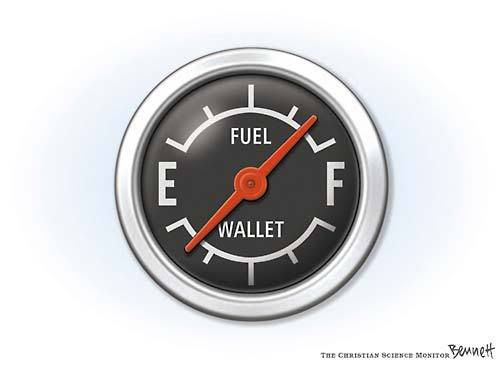
By: Thomas Boldt (The Calgary Sun, Alberta, Canada)

|
|
| Friday, October 12, 2007 |
| Hospital Economics |
Hospital Economics
By Zerge Zandueta
I have intended to write this entry around 1 week ago.
It was Sunday. And it started out like every other Sunday in my life. I woke up to the alarm of my cellphone – stretched, tossed, turned, and hugged my pillow as I tried to prolong the sweet sensation of dreamless sleep. Squinting through droopy, half-opened eyes, the LCD on my phone read 700 am. It’s so cold during this time of the morning. And it seems getting up is the hardest thing to do.
But thank God I can, because someone else couldn’t.
I woke up an hour earlier than usual so I could type up my Philo paper before going to Church. I went downstairs and sat at the dining table. While typing away at the laptop, I was surprised to hear my dad tell my mom over breakfast, “Sama ko na si Zerge sa hospital, mauna na kayo sa Church.” And so I wondered who was sick. My dad answered me that it was my grandma. She had a fever and was feeling extremely weak. Aaah.
Of course, I didn’t think much of it at first. My grandma usually has routine check-ups per month, and so maybe this wasn’t so much out of the ordinary. But boy was I wrong.
Before leaving for the hospital, we had to bring my grandma to the car. My dad told me to carry her, since he has a tennis elbow. “Kaya mo ba?” he asked me. Well, yeah, since I thought I was strong. But it turned out I wasn’t. My grandma could not move at all. I carried her deadweight. We almost fell as I was carrying her downstairs. We had to stop halfway since she had a very constrained look in her face. I was initially carrying her in a weird position, supporting her back while my dad assisted on lifting her legs. To finish bringing her down, we moved to a different position with me carrying he alone “married couple style.” She was really heavy, and the pressure to carry her without falling and making her feel uncomfortable made me sweat like probably never before. It was also such a task to simply bring her to the car.
As we were driving to Medical City, I was already pondering what could be wrong with her. I was already feeling all sad since I haven’t really spent time with her even though her room was just across mine, an itsy-bitsy 10 meters away. To cut a long story short, it turns out that she had another stroke. And this time, it paralyzed her from the neck down. She already had one before that almost cost her life. It’s just one of those things that inevitably happen to old folks.

So where does economics come into all of this? Well, just three days into the hospitalization I found out from my dad that the bill already ballooned to 120K pesos. Wow. An MRI scan already cost roughly 80K. Adding to that, a surgeon proposed to have my grandma undergo an operation at her spine to make her walk again, which would cost 400K+.

At this, I simply just can’t believe Medical City or at least that surgeon. How could they even think of an operation as a solution when the obvious fact that my grandma’s 86 year old body probably couldn’t handle it anymore. In fact, an operation at this stage could be the very thing that could lead to her death. Are hospitals and doctors now just desperate profit-seeking entities?
Since this is written for an economics class, I will tackle the “economic nature” of the problem.
The prominent question that pops us for me is, how can they charge so expensively? I was actually taken aback when I asked my mom last Monday how my grandmother was doing and she replied with the mounting medical bill. People care about price. In many cases, it is the number one factor people look into before buying a product. But in times of sickness, one can hardly do anything about it. Why?
Because medicine, and all these medical related things are inelastic goods. This means that even though the hospital raises their price, people still buy them. Price elasticity of demand is a measure of consumers’ responsiveness to changes in prices of a certain good. In rather more economic terms, it is the percentage change in the quantity demanded of a good in response to a 1 % change in its price. A good that has a corresponding 1% change is a unitary elastic good; greater than 1% elastic; and less than 1% inelastic. Here we see that even though the hospital increases prices for their medicine and other services, demand doesn’t fall by much, if it even does at all.
Why?
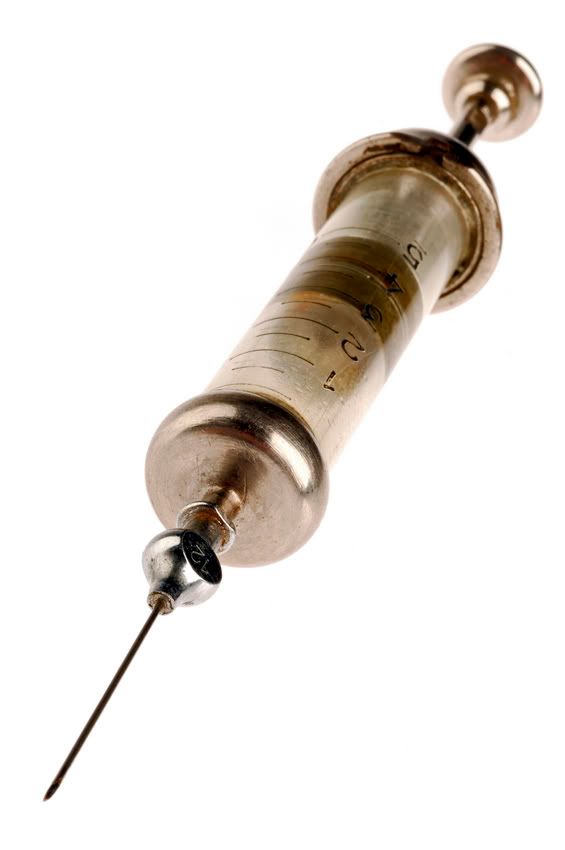 Obviously, this is because not buying that medicine or service may mean the difference between life and death. And here the question arises, what value does one place on life? An interesting bit of information I found out last sem was that in America, a human life was monetarily valued at approximately 50 million dollars, while here in the Philippines, it is only 50,000. In any case, people just cannot refuse to buy the heavily marked-up medicine because their loved one would suffer. They cannot say, “MRI? Grabe, mahal! Huwag na lang kaya,” and risk the doctor diagnosing an illness on his own. We are a family oriented culture. We value the lives of people we love, and perhaps that is why among other things, we speak so strongly against euthanasia and voluntarily cut open holes on our pockets in times like these. Isn’t life more precious than all the money in the world? If so, then maybe hospitals really are smart… They actually figured this out, and figured out a way to take advantage of it. Obviously, this is because not buying that medicine or service may mean the difference between life and death. And here the question arises, what value does one place on life? An interesting bit of information I found out last sem was that in America, a human life was monetarily valued at approximately 50 million dollars, while here in the Philippines, it is only 50,000. In any case, people just cannot refuse to buy the heavily marked-up medicine because their loved one would suffer. They cannot say, “MRI? Grabe, mahal! Huwag na lang kaya,” and risk the doctor diagnosing an illness on his own. We are a family oriented culture. We value the lives of people we love, and perhaps that is why among other things, we speak so strongly against euthanasia and voluntarily cut open holes on our pockets in times like these. Isn’t life more precious than all the money in the world? If so, then maybe hospitals really are smart… They actually figured this out, and figured out a way to take advantage of it.
Now I’m not saying that hospitals are mean. Everyone, yes, even hospitals are profit maximizing firms. If they weren’t they’ll probably be out of business. That’s the sad fact. Medical City especially needs to charge higher rates considering they have to recover all the capital invested in building the hospital. What is weird for me though is sometimes they seem to overstep the border between being such and being actually human. The last time my grandmother was confined in the hospital (2 years ago), I was surprised to learn that my grandma’s medicine had to be bought at the hospital at a price 30-50% more than in Mercury drug. The really funny thing here is that the hospital won’t apply the medicine if it’s bought from the outside. Woah (I don’t know if this policy has already changed). And then now, there’s that surgeon who’s proposing an expensive operation! Like c’mmon, care and help a brother out man!
I’m proposing that hospitals somewhat try to be price discriminators according to a family’s status in society. What I mean here is that they should charge a fixed price for their services that could go down lower (but still over average cost) according to the patient and his family’s ability to pay. They could base this on the income bracket the patient’s family belongs to. Once they ascertained the family’s ability to pay, they can assign doctors who charge less to poorer families. Also, before undergoing scans and tests and buying medicine, the patient’s family could first present their BIR receipts so that they could accordingly be given a discount.
There are 3 conditions to be able to price discriminate:
1. The firm has to have some degree of market power
2. The firm is able to identify distinct customer groups with different elasticities
3. The firm has to be able to prevent the resale from low price customers to high price customer groups
I believe the hospitals in Metro Manila, especially the major ones (Medical City, St.Luke’s, Cardinal Santos) can somehow satisfy these conditions. They have market power since they have the reputation of housing the best doctors and having newest technologies. They could easily identify the income brackets of customers by coordinating with the BIR or asking the customers themselves. And they could prevent resale of medicine by selling only based on a doctor’s prescription (with regards to their tests and services, the question of resale is irrelevant).
In the end, the hospitals may not like it, since they’re probably doing well anyways charging at their current rates. But I believe it would be for the betterment of society. PGH is already so full and it seems that the doctors and nurses there couldn’t adequately pay much attention to every patient anymore. By lowering their prices, the big hospitals could probably attract some of the poorer families and give them better services.
If this were a perfect world, perhaps the more desirable 1st degree perfect price discrimination could occur. The hospitals can charge a different price for each patient with the price exactly equal to the maximum price that patient is willing to pay. Imagine the many lives that could be saved. Economically, this is very desirable as well, as all deadweight loss would be erased for both consumers and producers.
But this is reality.

And maybe in the end, the hospitals aren’t the only ones to blame. It is in these moments of utter desperation wherein you realize how much you love, and how much you wish you could have loved when you still had the chance. Maybe we won’t feel so bad when the moment comes and a loved one falls into the prospect of death. Maybe we won’t feel so frustrated at the exorbitant rates doctors are charging to save a life. Maybe we won’t when we’ve already made that person we love know that we love them so much.
After her first stroke, I didn’t really spend time with my grandma. I’ve always thought, “Hey, she’d be okay. There’ll still be time in the future when I could hang with her.” Not so. We have to value each moment we have with the people we love each day. Fastforwarding to today, thankfully, my grandma is doing much better, although she really can’t move anymore. No, she didn’t die. She was supposed to go home today but I guess her stay at the hospital was prolonged (hmm... I wonder why$$$).
At least now I’m sure she’s more important than all the papers I wrote and hours I spent on tv, the internet, and videogames. When she comes back home, I’m gonna pay her a daily visit. |
posted by Leontief Lovers @ 3:03 AM  |
|
|
|
|
| About Me |
|
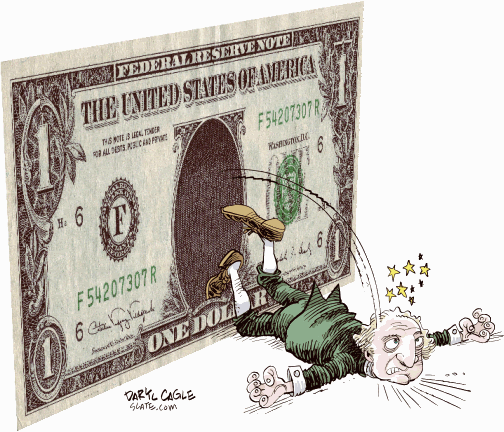
Name: Leontief Lovers
Home: Manila, Philippines
About Me: people wonder why we are called leontief lovers. it's simple, in eco, there is a canonical form of utilty and production function called Leontief Preferences / Technologies. In a two good/input world, you always would need the other good/input in order to remain satisfied/have the ability to produce... in other words, you will never substitute one good for another, you need to consume/use both goods at a fixed proportion at the same time... LIKEWISE, in our blog, WE WILL NEVER TRADE NOR SUBSTITUTE ECO FOR ANOTHER!
See my complete profile
|
| Time |
|
|
| Previous Post |
|
| Archives |
|
| Poll |
| |
| Links |
|
| Lovers Recommends |
| Books
"The World is Flat" by Thomas Friedman
"Confessions of an Economic Hitman" by John Perkins
Movies
"A Beautiful Mind"
"Wall Street"
|
| EcoBizLife |
|
| Fun Zone |
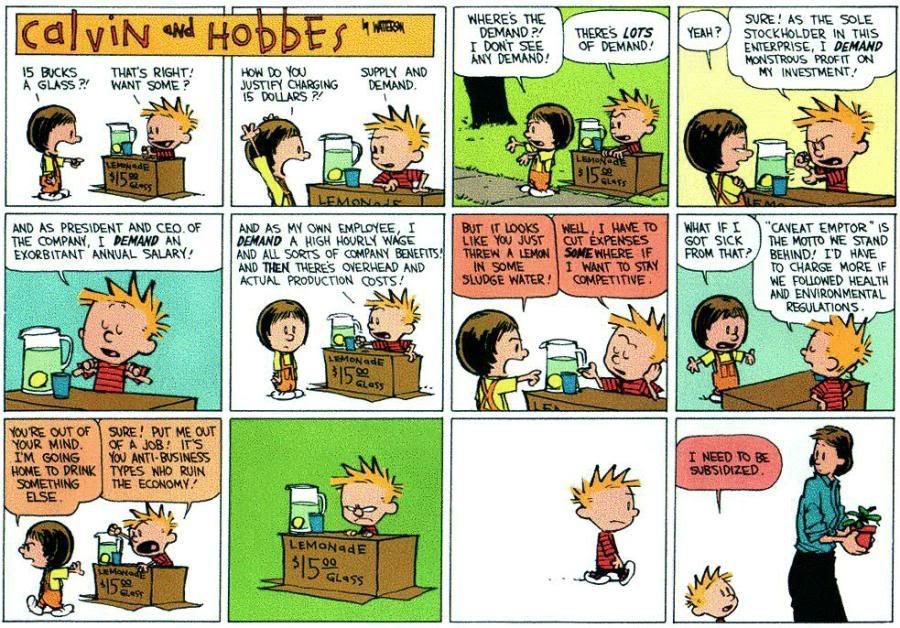
Calvin and Economics
Jokes
An economics professor and a student were strolling through the campus.
"Look," the student cried, "there's a $100 bill on the path!"
"No, you are mistaken," the wiser head replied. "That cannot be. If there were actually a $100 bill, someone would have picked it up."
Feudalism: You have two cows. Your lord takes some of the milk.
Socialism: You have two cows. State takes one and gives it to someone else.
Communism: You have two cows. State takes both of them and gives you as much milk as you need.
Bureaucratic Communism: You have two cows. State takes both of them and gives you as much milk as the regulations say you should need.
Bureaucracy: You have two cows. State regulates what you can feed them and when you can milk them. Then it pays you not to milk them. After that it takes both cows, shoots one, milks the other and pours the milk down the drain. Then it requires you to fill out forms accounting for the missing cows.
Fascism: You have two cows. State takes both of them and sells you milk.
Nazism: You have two cows. State takes both of them and shoots you.
Liberalism: You have two cows. State dosen't care whether you exist, let alone your cows.
Capitalism: You have two cows. You sell one and buy a bull.
PRICE IS IMPORTANT!
(disclaimer: may be a little off-color)
"My Dear, would you go to bed with me for a million dollars?"
"Well, yes, I guess I would."
"How about $100?"
"What kind of person do you think I am?"
"My Dear, we have already established that. We are merely haggling over the price!"
|
| Template by |

 |
|
